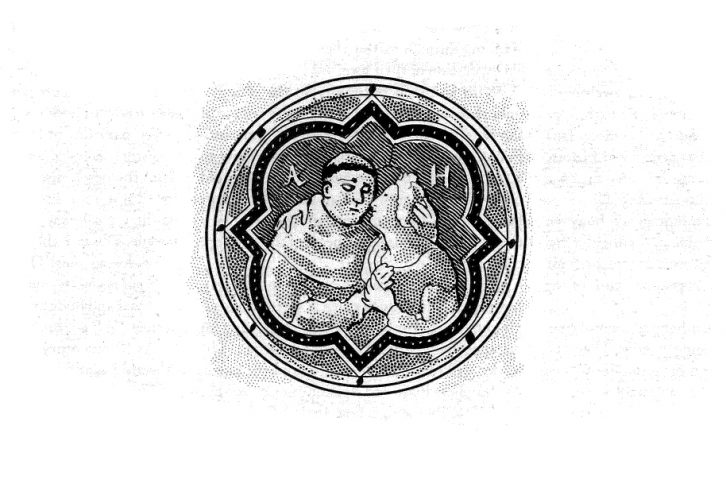Gerard Alexander applauds Natan Sharansky’s epic journey to freedom, but questions the methodology of the author’s The Case for Democracy (“Freedom Fighter,” Spring 2005). Alexander acknowledges the nobility of Sharansky’s words, but argues that his evidence does not make the case. We are told that the book’s two examples—the Soviet Union and Israel—are not an adequate basis upon which to generalize. But Alexander’s objection is misguided because Sharansky’s work is not academic research. His assessment is original analysis based upon personal observations of captive people. Moreover, Alexander’s criticism does not disprove Sharansky’s case. In addition to Sharansky’s two examples we can point to other aggressive states that brought violence to the international system in the 20th century, and subsequently became peaceful following the institution of democracy—states such as Turkey, Japan, and Germany.
Alexander faults Sharansky’s critique of academics, “freedom’s skeptics,” who question democracy’s universal application. But Sharansky’s bold vision resembles our Founding Fathers’ generalization on the human condition: “We hold these truths to be self-evident that all men are created equal….”
When horrible crimes and grave injustices have been committed, and public confidence is shaken, it may be necessary for leaders to act without the benefit of lengthy academic study. Instead of discrediting The Case for Democracy, as Alexander has tried to do, Americans should embrace Sharansky’s tour de force. His understanding of life without freedom and his moral clarity offer unique insights to all who wage the war against terrorism.
Andrew P. O’Meara, Jr.
Colonel, United States Army, Retired
Pawleys Island, SC
* * *
Us and Them
In his reply to Michael Ignatieff’s letter (“Sovereignty and Torture,” Spring 2005), Jeremy Rabkin asks, rhetorically we may assume, “Why shouldn’t we interpret our international obligations in ways that impose the least burden on our efforts to defend ourselves”? Imagine asking this about how police ought to deal with criminal suspects—why bother about due process in defending us from suspected criminals, something that surely imposes burdens on the police, and us as well? Prof. Rabkin seems to think that unless there is a quid pro quo, such suspects deserve no consideration for their rights. But when one has rights, unalienable ones especially, one keeps them even if one has violated those of another. People do not cease to be human beings even if they are criminal or terrorist suspects.
Tibor R. Machan
Chapman University
Jeremy Rabkin replies:
Tibor Machan suggests that American military tactics in foreign wars should be constrained, in some way, by the rights accorded to accused individuals in ordinary law enforcement in our own country. If this were true, then all past wars fought by the United States have been fought with shocking disregard for legality. The U.S. military has always treated enemy combatants differently from crime suspects at home. Perhaps on this point, Prof. Machan’s complaint should be directed to the framers of our Constitution who authorized Congress to enact “rules for the…regulation of the land and naval forces.” From the first Congress onward, that provision has always been understood to mean different “rules” for the military from those laid down in the Bill of Rights.
Next, Machan equates American obligations under international agreements with constitutional duties at home. In most circumstances, American treaty obligations are precisely dependent on other parties adhering to a quid pro quo. That is why, for example, the Geneva Conventions stipulate that they apply only between “contracting parties” and those who “comply with the standards” set down in them. Here again, Machan’s quarrel is with the American Founders. In The Federalist, James Madison noted that the Articles of Confederation, as a treaty among states, could be rightfully discounted by any state, whenever another state committed a “breach” of its terms, given the “principle of reciprocality” governing “the subject of treaties.” Madison’s precise point was that the Constitution commands authority that a treaty does not.
Finally, Machan wants to entangle “natural rights” with treaty obligations and constitutional duties. I acknowledge that moral considerations may place limits on our choice of military tactics. I said that in so many words in my review of Ignatieff’s book. And yet, some very formidable “natural rights” theorists, such as John Locke and Hugo Grotius, thought the doctrine compatible with such brutal extremes as perpetual enslavement of defeated enemies.
If Machan wants to defend constitutional rights at home—and I certainly join him in that aim—he should steer as far as he can from equating our Bill of Rights with the absurd mish-mash of empty platitudes offered up in international human rights conventions. These conventions were not the work of diplomats devoted to American ideals of liberty. It is because humanity at large is not governed by a common set of laws that we need to have our own military in the first place and need to leave it free to adapt to the tactics deployed by our enemies.
* * *
Ending Slavery
In the course of reviewing two books on Abraham Lincoln and the Civil War, Mackubin Owens asks rhetorically, “Who knows when slavery would have ended?” (“Subjugation and Extermination,” Winter 2004). But history tells us that the largest slave labor-based economy in the Western Hemisphere (indeed in the world) ended slavery in 1888, not long after the U.S. Civil War, because it was no longer profitable. It would have become unacceptably unprofitable even sooner in the more technically advanced United States.
The “peculiar institution” was already becoming measurably less profitable in the U.S. by 1860, as data in a multitude of studies on the subject illustrate, to the point where only westward expansion and enlarged slave-breeding offered hope for profitability.
Mr. Lincoln could have bought out the slaveholders for $3 billion (3 million slaves at $1,000/head) but instead chose to start a war which cost $12 billion and 600,000 lives and which left a quarter of the country devastated.
Martin Harris
Brandon, VT
Mackubin Thomas Owens replies:
Since the Constitution left the issue of slavery to the states, Lincoln believed from the outset of his presidency that if he could prevail upon state legislatures to accept gradual, compensated emancipation while preventing the expansion of slavery into the federal territories, he could shrink slavery by making it uneconomical. This would place it back on the eventual road to extinction that he believed the founders had envisioned.
Of course, seven Southern states seceded before his inauguration, and four more followed after the Confederate attack on Fort Sumter. When he proposed his plan for gradual, compensated emancipation to slaveholders in the loyal Border States, they rebuffed him.
I’m not sure what more Lincoln could have done to avoid war other than give in on the issue which had led to the 1860 Republican electoral victory. During his First Inaugural, Lincoln reiterated his oft-stated position that he did not have any intention of interfering with slavery where it legally existed, and did not possess any lawful right to do so. But he adamantly refused any compromise on slavery’s expansion.
Does Mr. Harris believe that the South should have been permitted to “go in peace”? Secession would not have led to peace but to endless war on the North American continent—and perhaps even in South America. More importantly for Mr. Harris’s argument, it would have given slavery a new lease on life.
The Confederacy envisioned an empire stretching north to the Mason-Dixon Line and the Ohio River and west to the Colorado. This empire would have contained all 15 slave states, including those that had not seceded, and two existing U.S. territories, New Mexico and the Indian Territory south of Kansas.
In keeping with this grand vision, the Confederacy admitted Missouri and Kentucky to statehood, despite the lack of a secessionist majority in either state. The Confederate congress initiated treaties with the Indian tribes and dispatched an expedition to conquer the New Mexico Territory for the Confederacy. In January 1862, it organized a separate Arizona Territory. The “slaveholding empire” envisioned by the Confederacy would likely have turned its attention south to Cuba, Mexico, and Central America, the frequent targets of antebellum pro-slavery “filibusters.”
Had reformers within the Confederacy decided at some point in the future that slavery ought to be abolished, they would have found that the Confederate constitution blocked their way. For unlike the U.S. Constitution, which left the question of slavery to the states, making decentralized abolition possible, the Confederate constitution prohibited the Confederate congress from passing any law “impairing the right of property in negro slaves” and prohibited the states from likewise interfering with the institution of slavery.
Mr. Harris acknowledges that “only westward expansion and enlarged slave-breeding offered hope for [slavery’s] profitability.” Had a “slaveholding empire” expanded to the west and south, slavery might still be with us today.



